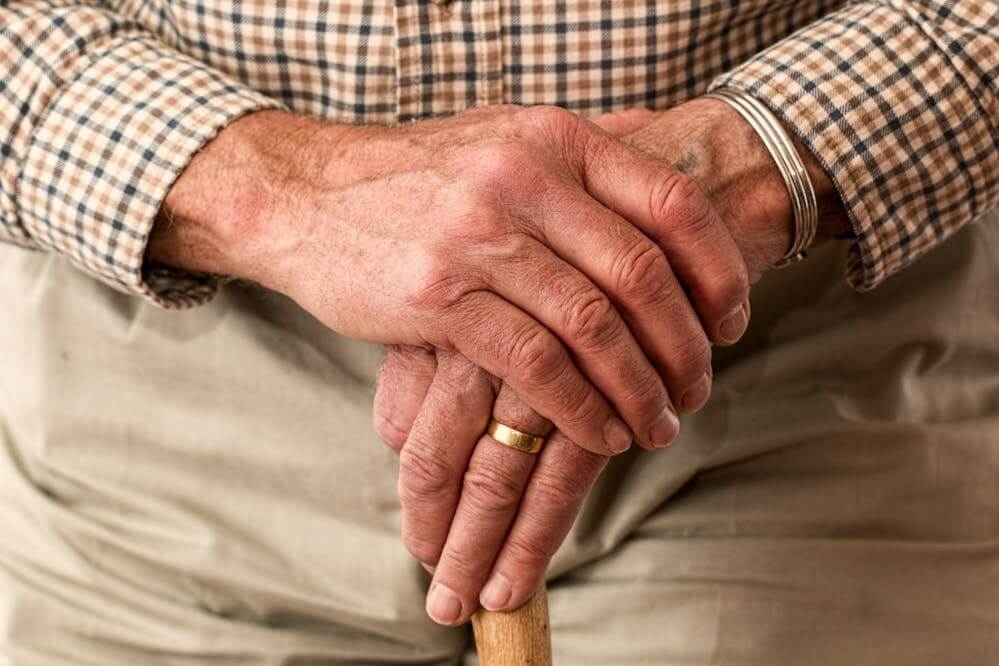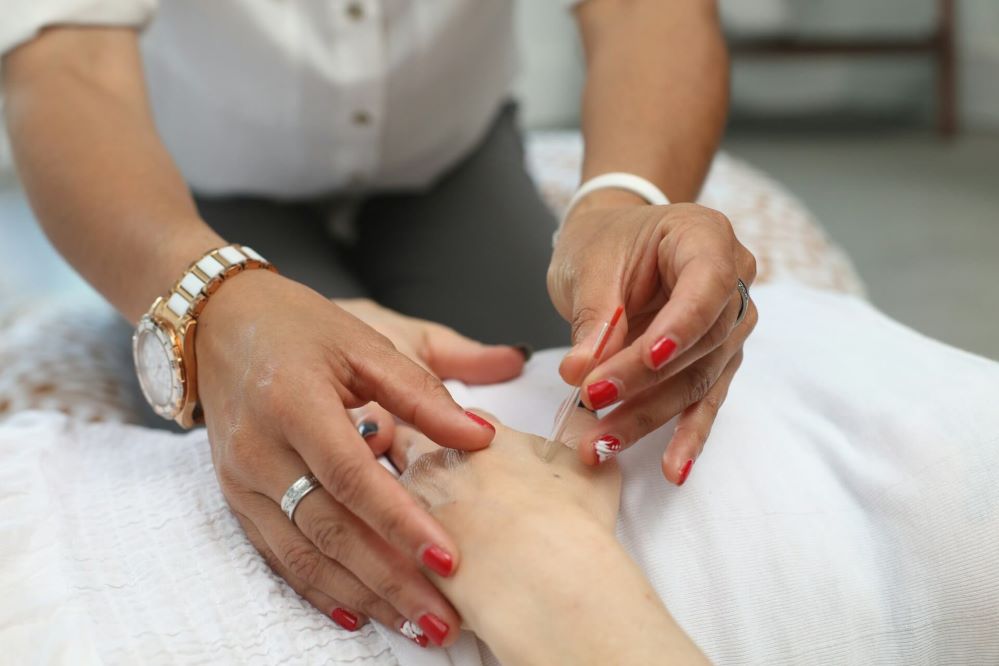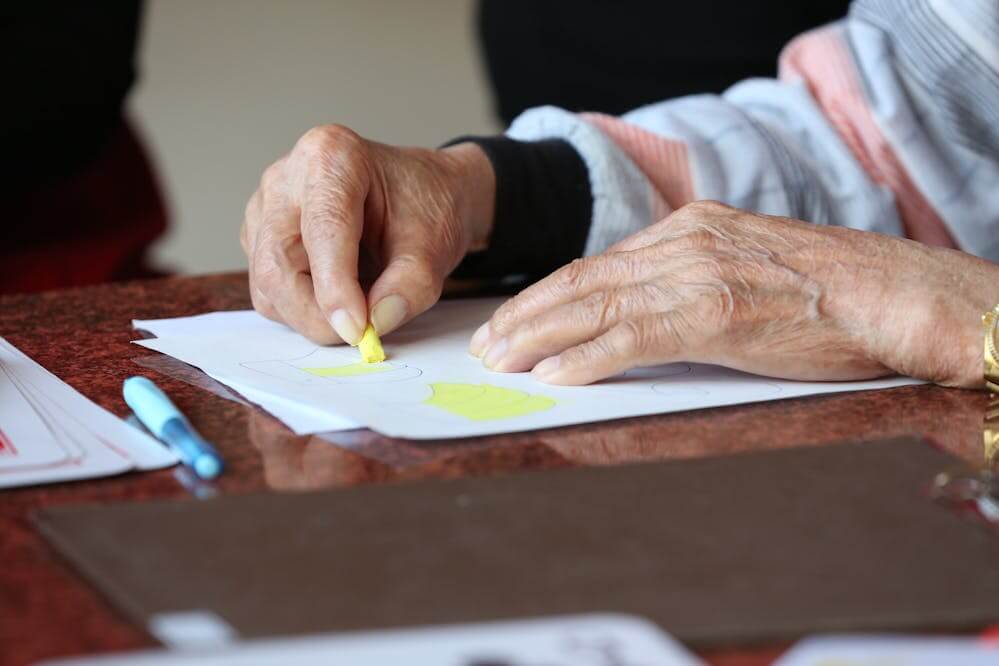Living with arthritis means everyday tasks such as cooking, laundry, and gardening can become more challenging as the condition progresses. While there are treatment options such as surgery, joint immobilization, medications, and more, acupuncture rises as a holistic, complementary treatment that sets off a cascade of benefits, both physical and psychological. Moreover, acupuncture can help at almost any stage of your condition and can be an alternative treatment that breaks the ‘pain cycle.’
So, join us and discover the benefits of acupuncture for arthritis relief and how it can profoundly impact the quality of your life.
What is Arthritis?

Arthritis is a common and often debilitating condition affecting millions worldwide. In the U.S. alone, 21.2% of all adults, or 53.2 million people, have arthritis. It refers to inflammation or swelling of one or more joints. Arthritis isn’t just a single disease; it encompasses more than 100 types of arthritis and related conditions. Of these types, the most common ones include:
— Osteoarthritis
— Rheumatoid arthritis
— Gout
— Fibromyalgia
— Psoriatic arthritis.
Arthritis can affect any joint in the body, but it is most commonly manifested in:
— Hands and wrists
— Hips
— Knees
— Feet and ankles
— Lower back
— Shoulders.
Moreover, the most common symptoms and signs of arthritis include:
— Joint pain
— Swelling or inflammation
— Stiffness or reduced range of motion
— Skin discoloration
— Heat or a warm sensation near the joints
— Tenderness or sensitivity to touch around a joint.
What is Acupuncture?
Acupuncture is an ancient Traditional Chinese Medicine (TCM) practice that involves the insertion of thin, metal needles into specific points on the body to stimulate energy flow and promote healing. These particular points are called acupuncture points or acupoints, and according to TCM, there are 361 acupoints across 12 meridians in the body. According to TCM beliefs, Qi, or life force, which flows through the meridians, controls the workings of the body. Therefore, any disruption of Qi circulation through meridians can cause pain and clinical problems. Acupuncture can release Qi stagnation and promote balance in the body by stimulating specific acupoints in the body.
How Can Acupuncture Help Arthritis?

Acupuncture, either alone or in conjunction with other treatments, can help alleviate arthritis symptoms such as pain, inflammation, stiffness, and joint dysfunction, specifically those with osteoarthritis and rheumatoid arthritis.
Although Western medicine doesn’t recognize the concepts of Qi and meridians, there are scientific explanations for how acupuncture helps with arthritis. The primary reason is that acupoints contain free nerve endings, encapsulated cutaneous receptors, sarcous sensory receptors, and their afferent fiber. Thus, when the practitioner inserts needles in acupoints, the nerve endings and receptors will signal the brain to release pain-relieving neurotransmitters, such as endorphins and enkephalins.
Although we have much to discover about how acupuncture works, current research shows its efficacy in treating various conditions, especially arthritis. A systemic review on the clinical effectiveness of acupuncture in treating rheumatoid arthritis and associated mechanisms concludes that acupuncture alone or in conjunction with other treatment modalities can be effective for rheumatoid arthritis without adverse effects. The review also includes possible mechanisms, such as the anti-inflammatory and antioxidative effects and the regulation of immune system function.
Another review of randomized, controlled trials concluded that acupuncture should be considered a viable adjunct or alternative treatment for knee pain and dysfunction associated with osteoarthritis.
In addition, a recent systematic review and meta-analysis investigated the effectiveness of acupuncture and acupuncture-related treatments (traditional acupuncture, electro-acupuncture, and moxibustion) as complementary therapies to manage rheumatoid arthritis. It further solidified the effectiveness of acupuncture in conjunction with Western medicine in improving clinical symptoms of rheumatoid arthritis.
Acupuncture Points for Arthritis
In acupuncture, treating arthritis involves stimulating specific points believed to be pivotal in promoting healing, some of which are:
— GB-34 or Yanglingquan: Stimulating this point helps improve circulation, relax the surrounding muscles, and reduce inflammation.
— ST-36 or Zulansi: This acupoint can help alleviate pain, reduce inflammation, and improve joint function.
— LI-4 or Hegu: Activating this acupoint can help alleviate pain in the knee and improve swelling
— SP-9 or Yinlingquan: This acupoint can help alleviate pain and improve joint mobility.
What to Expect During an Acupuncture Session
If you’ve never had an acupuncture appointment before, here are a few things to help you prepare for your acupuncture session:
— Don’t engage in stressful activities before or after your appointment
— Bring a list of medications and supplements you take
— Eat an appropriate amount before your appointment
— Wear loose-fitting, comfortable clothing
— Avoid caffeine before your appointment.
Although some acupuncture sessions are shorter, they typically last up to 60 minutes. Your practitioner will begin the session with an initial consultation, assessment of symptoms, and treatment plan. They’ll also ask you about your lifestyle and may examine the parts of your body that are painful, the strength and rhythm of the pulse in your wrist, the shape, coating, and color of your tongue, and the color of your face.
Afterward, the practitioner will begin the process of needle insertion at different depths at strategic points on your body. Typically, they use five to twenty needles. Then, they’ll gently move or twirl the needles or apply heat or mild electrical pulses to them. The needles usually remain in place for 10 to 15 minutes, after which they’re removed. During needle insertion, you may experience a tingling, warm sensation, or De Qi, which is a sign that the treatment is working.
After the session, you may feel relaxed or energized. However, remember that not everyone responds similarly to acupuncture, so you may begin to see improvement after the first few sessions.
Advantages of Acupuncture in Arthritis Care

Perhaps the most important advantage of acupuncture for arthritis is that it allows you to see significant improvements in your quality of life as it aids in pain relief. A study concluded that acupuncture, in conjunction with other treatments, can positively affect pain, hand and arm strength, and quality of life for rheumatoid arthritis of the hand. Moreover, one of the main benefits of acupuncture as a complementary therapy for arthritis is that it serves as an alternative treatment that is noninvasive and reduces the potential for reliance on medicine.
Additional benefits of acupuncture for arthritis include:
— Improved sleep
— Improved mood
— Reduced stress
— Improved mental clarity.
Understanding the Risks and Side Effects of Acupuncture
Acupuncture is a safe practice, and inserting needles at specific points is a gentle way to heal the body. While even the thought of needles can be unnerving, you can expect little to no pain when receiving acupuncture from a qualified and licensed practitioner.
The significance of receiving acupuncture from a highly trained professional is emphasized, considering the risk of adverse effects from incorrect acupuncture, including punctured organs, collapsed lungs, infections from non-sterile needles, and injury to the central nervous system. However, there are few instances where people have reported the above effects.
Some might experience mild, short-term side effects such as:
— Bleeding, pain, or bruising where the needles puncture the skin
— Dizziness
— Fatigue
— Drowsiness.
If you have a bleeding disorder, such as hemophilia, or are taking anticoagulant medicine, talk to your primary care provider before receiving acupuncture. Also, although acupuncture is generally safe during pregnancy, make sure you let your practitioner know so that they can avoid certain acupoints that aren’t safe during pregnancy.
How Much Does Acupuncture for Arthritis Cost?
The cost of acupuncture sessions for arthritis treatment depends on the clinic’s location, session duration, practitioner experience, and the body part that will be treated. At our Holistic Wellness Center, we strive to provide natural healing options at an affordable price. Therefore, the price of professional acupuncture for the first visit is $95, and for return visits, it is $80. Moreover, you can receive acupuncture treatment from an acupuncture intern for $50 for the first visit and $45 for return visits.
Remember that some health insurance policies will cover acupuncture, but others don’t. Insurance coverage is often limited based on the condition being treated. For example, Medicare covers up to 12 acupuncture sessions in 90 days for chronic low back pain and covers an additional eight sessions if the acupuncture is effective. On the bright side, a recent survey examining trends in insurance coverage for acupuncture in the 2010-2019 period reported that insurance coverage visits have increased but regard the present limitations in coverage.
Wrapping up
With more than 100 types of arthritis, having a standardized treatment is nearly impossible. Therefore, exploring different treatment options, such as acupuncture, can allow you to find what works best for you. Acupuncture, as a noninvasive, complementary treatment, can help reduce inflammation and alleviate pain, stiffness, and joint dysfunction. Most importantly, it can help you regain control and take life by storm.
We welcome you to our Holistic Wellness Center and kindly invite you to book an appointment to experience the world-changing effects of acupuncture firsthand.
Frequently Asked Questions (FAQs)
Is acupuncture an effective treatment for arthritis?
Yes, acupuncture can be an effective treatment for arthritis alone or in conjunction with other treatments. Scientific research shows that acupuncture can be an effective treatment to relieve pain, inflammation, and joint dysfunction associated with arthritis.
How often should I get acupuncture?
The frequency of acupuncture sessions depends on the condition being treated and its severity, with sessions typically performed once or twice a week. In general, patients start noticing positive results from the first or second session; however, many need more sessions (six to eight sessions) to see significant improvement.
How long do the effects of acupuncture last?
Usually, you may notice the effects of acupuncture in around three to four days. However, for long-lasting effects, acupuncture requires consistent sessions.